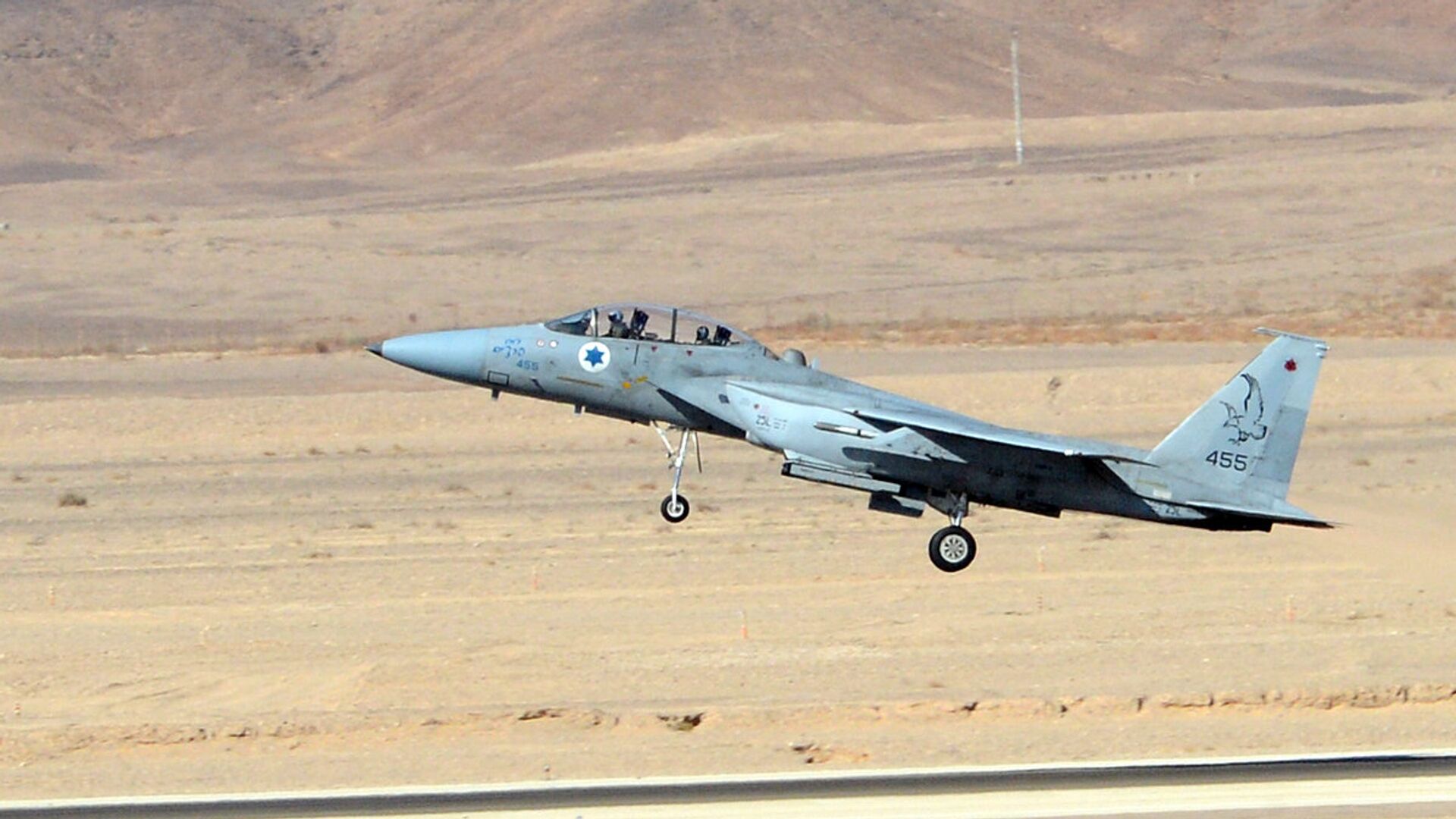Iran ‘Not Even Close’ to Nuclear Weapon But Israel Can Act Alone if Required, Ex-Mossad Chief Says
21:07 GMT 12.10.2021 (Updated: 10:18 GMT 07.12.2022)
Subscribe
Israeli intelligence leaders have said Iran isn’t close to building a nuclear bomb, but that Israel is capable of stopping it if it were and the US refused to act. However, Mike Pompeo, the former US secretary of state and former CIA director, said the Biden administration had weakened Jerusalem’s position and strengthened Tehran’s.
Pompeo claimed on Saturday that US President Joe Biden had squandered the “gulf-threatening culpability” the prior Trump administration had worked to give Israel.
“We denied them resources and we denied them the ability to build out a gulf-threatening culpability,” Pompeo told the Jerusalem Post’s 10th Annual Conference on Tuesday.
“The strike on Qasem Soleimani demonstrated our willingness to defend American interests around the world,” he added, referring to the January 2020 US airstrike outside Baghdad that killed the commander of Iran’s elite Quds Force. “The work we were engaged in would have prevented Iran from getting a nuclear weapon.”
As former US President Donald Trump’s CIA director and later US Secretary of State, Pompeo spearheaded the US’ unilateral withdrawal from the 2015 Joint Comprehensive Plan of Action (JCPOA) and the return of crushing “maximum pressure” sanctions against Iran.
Trump claimed Iran had been secretly violating the deal’s provisions, which limited its nuclear activities to a small amount of low-grade refined uranium, enough for a few power plants and medical research, in exchange for the lowering of economic sanctions.
In response to the move, which sent the Iranian economy into a tailspin and severely hampered its ability to combat the COVID-19 pandemic and other outbreaks requiring imported medicines, Tehran began to reduce its compliance with the 2015 deal by increasing the quality and quantity of uranium it was producing.
After US President Joe Biden took office in January, his administration began talks to return to the JCPOA, but nine months later, negotiations are continuing. Biden has said he believes it to be the best way to prevent Iran from getting a nuclear bomb, even though Iran’s senior leadership has forsworn them and all other weapons of mass destruction.
“The current administration wants to re-enter the deal, longer, better, stronger? Well, I want it longer, I want it better and I want it much, much stronger,” Pompeo said, adding that another year or two of the Trump administration would have forever ended Iran’s supposed nuclear weapons ambitions.
“We were never going to let Iran get a nuclear weapon on our watch,” he said.
Israel’s political leadership has long claimed an Iranian nuclear bomb was imminent, being one of the few governments that found American claims compelling. However, Israeli intelligence has been far less alarmist. Earlier this month, Maj. Gen. Tamir Hayman, the head of Israel's Military Intelligence Directorate, told Walla News that while Iran has accumulated a “disturbing” amount of enriched uranium, there had been no parallel change in terms of a weapons program.
"To the best of our knowledge, the directive has not changed and they are not heading toward a breakout. They are not heading toward a bomb right now: It may be in the distant future,” Hayman told the Israeli online outlet.
Yossi Cohen, the former head of Israel’s Mossad intelligence agency, who oversaw the purported 2018 theft of Iranian nuclear program documents, also told listeners at the Jerusalem Post’s Tuesday forum that Iran “to this day, is not even close to acquiring a nuclear weapon.”
“This is due to longstanding efforts by some forces in the world,” he added, an oblique reference to Israel’s wide-ranging espionage targeting Iran’s nuclear program. Recent operations have likely included the assassination of Mohsen Fakhrizadeh, one of Iran’s seniormost nuclear scientists; a drone attack on the Karaj agricultural and nuclear medicine research facility; and several incidents at the Natanz Fuel Enrichment Facility that have been attributed to Israeli intelligence. Further back, the Stuxnet computer worm that destroyed 10% of Iranian centrifuges in 2009, is also widely believed to have been a US-Israeli creation.
However, Cohen and Pompeo struck similar tones when it came to an Israeli response.
“We have to develop capabilities to allow us to be absolutely independent, doing what Israel has done twice before,” Cohen said after claiming Israel has the ability to stop an Iranian nuclear weapon on its own.
In 1981, Israeli aircraft bombed Iraq’s Osirak nuclear reactor, which they (and the Iranians, ironically, who secretly helped them plan the raid) feared would be the cornerstone of a nuclear weapons program. Later, in 2007, Israeli aircraft also bombed a site in Syria’s Deir-ez-Zor Governorate, which they claimed had been a nuclear site built in conjunction with the Democratic People’s Republic of Korea for the purpose of extracting weapons-grade plutonium from spent nuclear fuel.
“They should not sleep quietly in Iran,” Cohen added.

